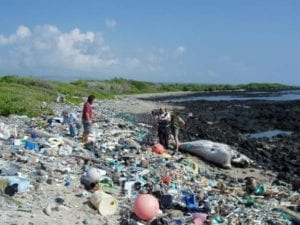The growing amount of litter found in oceans around Africa, the lack of understanding about ways of combating marine debris, and the need for a unified plan to tackle the problem on the continent will be high on the agenda during the forthcoming Second African Marine Debris Summit.
This year’s Summit, which takes place from 3-5 June 2015 in Cape Town, aims to establish a Southern African network that will increase research and awareness around the topic of marine debris, as well as launch new actions that quickly and dramatically reduce the amount of pollution found in the oceans.Why an African Marine Debris Conference?
Marine debris is an international concern not only because it washes up on beaches and shorelines worldwide, but also because debris can be transferred from one country serving as a vector for alien animals and plants to another via ocean currents. As African economies grow, unfortunately the ills associated with such an expansion are also increasingly reported. Researchers are finding that the world’s oceans and waterways are constantly polluted with a wide variety of marine debris ranging from cans and plastic bags to derelict fishing gear and abandoned vessels. Many animals, such as sea turtles, seabirds, and marine mammals, have been known to ingest and get entangled in marine debris, which may lead to loss of nutrition, internal injury, intestinal blockage, starvation, and even death.








